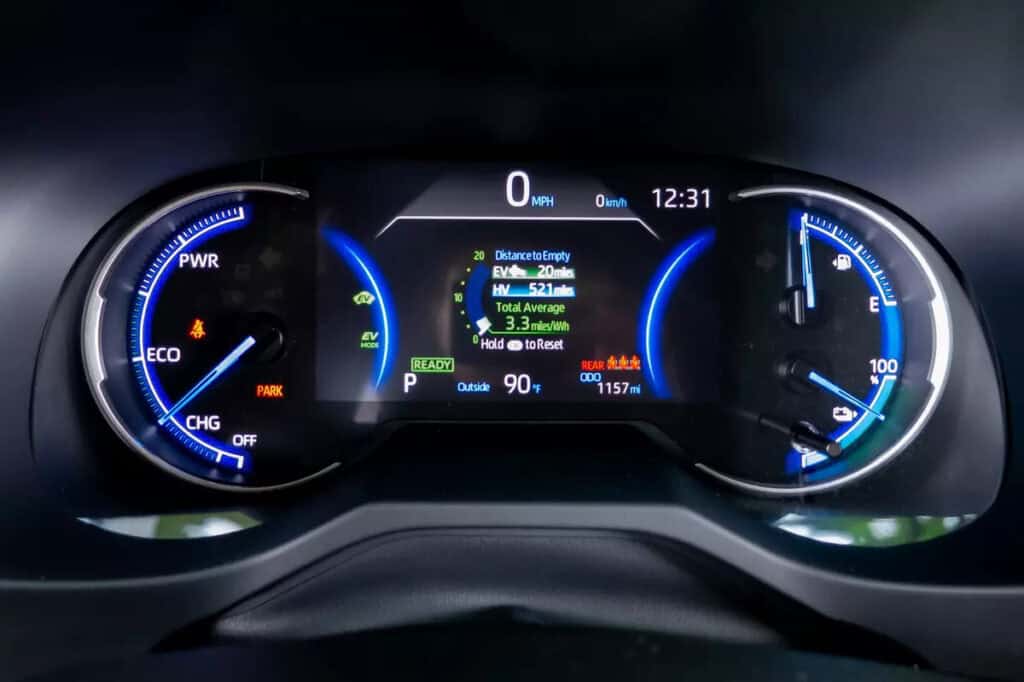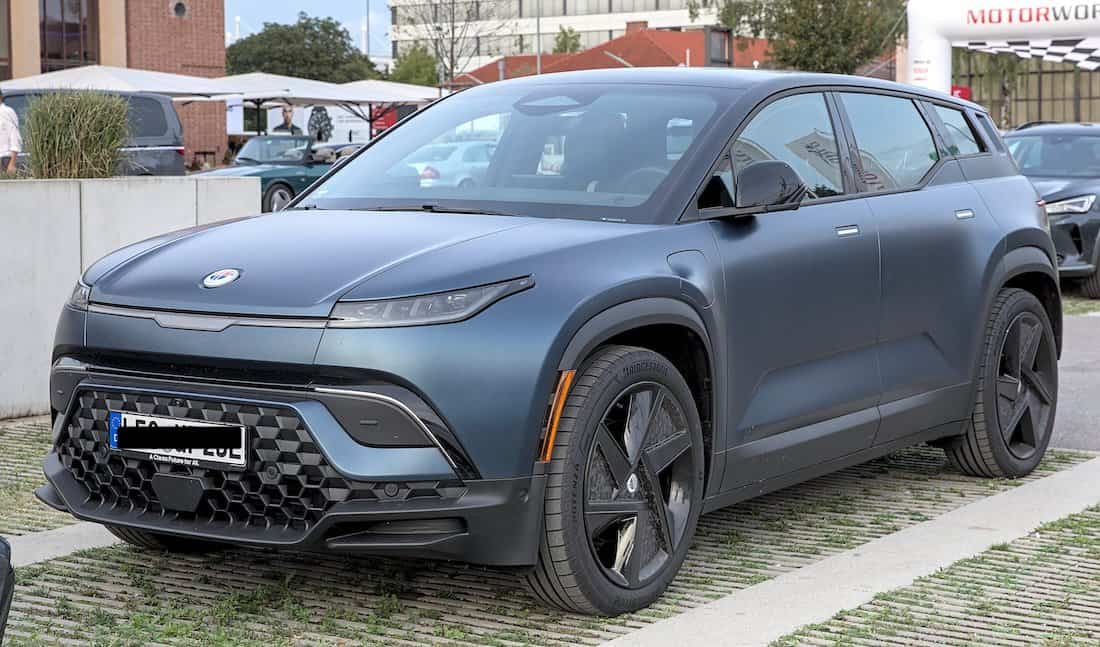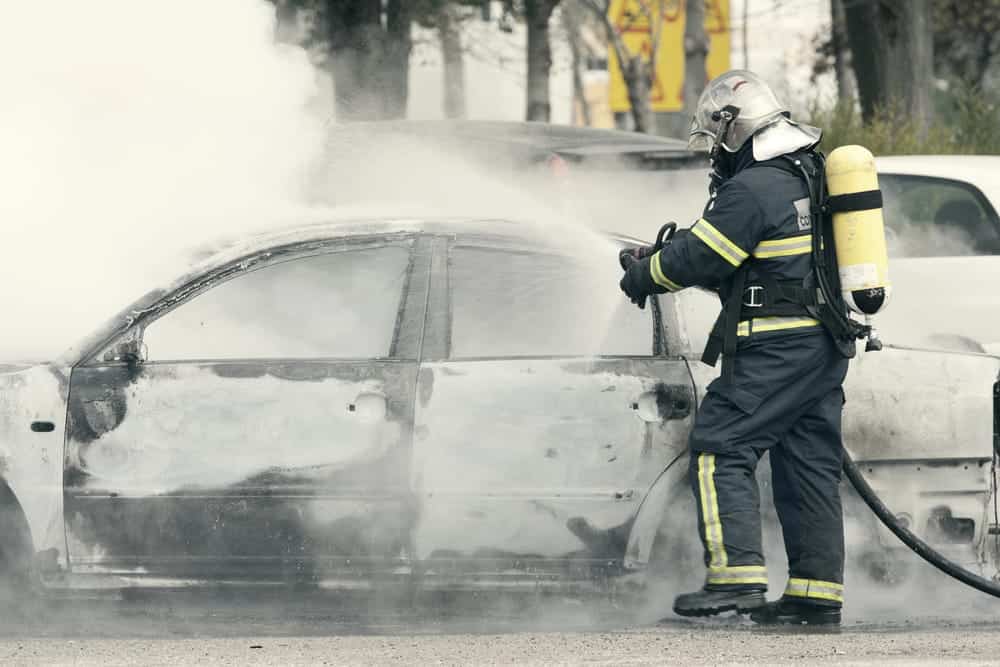Consumers in several class action lawsuits allege that Toyota advertises the fuel tank in certain 2019, 2020, and 2021 RAV4 Hybrid vehicles, a crossover SUV, as having a capacity of 14.5 gallons and a range of 580 miles. But even when nearly empty, owners cannot add over approximately 10 gallons of fuel before the automatic shut-off engages and stops the pump from filling the tank further.
However, they have requested approval to dismiss these class action lawsuits and any proposed settlement, meaning the statute of limitations to bring such claims under California law may be running if those cases are dismissed. A Court in California ordered plaintiffs to give notice that this lawsuit was being dismissed.
Current or former owners of these vehicles who live in California should know that California’s lemon law may force Toyota to “buy the vehicle back” or provide further meaningful compensation for those experiencing this defect.
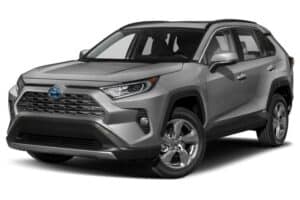 Under California’s lemon law, qualifying “lemons” must be repurchased, which can mean a large cash refund and payoff of your loan or lease. The refund could be as much as everything you paid for the vehicle and everything you owe: monthly payments, down payments, tax, finance charges, license, registration, etc. You could even qualify for two times your money back.
Under California’s lemon law, qualifying “lemons” must be repurchased, which can mean a large cash refund and payoff of your loan or lease. The refund could be as much as everything you paid for the vehicle and everything you owe: monthly payments, down payments, tax, finance charges, license, registration, etc. You could even qualify for two times your money back.
What Toyota would have to buy it for has nothing to do with its current worth. There is a formula in the law that starts with you getting all your money back and then taking certain deductions and exclusions away from your payment. Those refunds and exclusions are difficult to understand and can be fought against by knowledgeable consumer attorneys.
Status of Toyota RAV4 Hybrid Class Action Lawsuits
The Pulkrabek, et al. v. Toyota Motor Sales, Case No. 2:20-cv-00036-JRG-RSP case was filed in the United States District Court for the Eastern District of Texas on February 13, 2020. The plaintiffs brought it on behalf of a class of owners and lessees of certain 2019, 2020, and 2021 Toyota RAV4 Hybrid vehicles and 2021 RAV4 Prime vehicles.
While the parties had previously announced a settlement of that case, on February 4, 2022, the parties requested the action be dismissed. The court granted the request and ordered the case dismissed on February 8, 2022.
In addition, In Re Toyota RAV4 Hybrid Fuel Tank Litigation, 3:20-cv-00337-EMC, was filed in the United States District Court for the Northern District of California on January 15, 2020. In Re Toyota, Rav4 Hybrid Fuel Tank Litigation was brought by a different group of plaintiffs on behalf of a class of owners and lessees of certain 2019, 2020, and 2021 Toyota RAV4 Hybrid vehicles and 2021 RAV4 Prime vehicles but challenging the actual fuel capacity of these vehicles.
While the parties had previously announced a settlement of that case, on May 9, 2022, the parties requested the action be dismissed. On May 31, 2022, the Court stated it would dismiss the class action lawsuit once notice had been provided to individuals who had contacted counsel and a press release had been issued.
On July 18, 2022, counsel for Plaintiffs confirmed that it had emailed 738 individuals “to inform them that (1) the individual claims asserted by the thirty-nine named Plaintiffs against defendant Toyota Motor Sales, U.S.A., Inc. in the case have now been settled, (2) the Court has approved the parties’ request to dismiss absent class members’ claims without prejudice, and (3) if any individuals wish to proceed with claims against Toyota regarding the alleged RAV4 fuel tank defect, they should be aware that such claims are subject to a statute of limitations and they should contact another attorney to file suit on their behalf if so desired.”
On August 5, 2022, the Court issued an Order dismissing the class action. Currently, there are no class actions pending over this issue and no potential class action settlements that we are aware of. This means the time to bring any lawsuits over this defect may be ending soon, depending on when you purchased your vehicle.
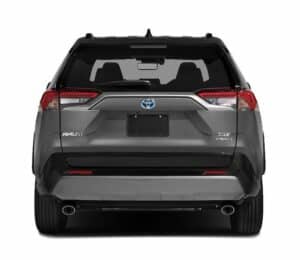 With vehicle class actions, what to do can be a complicated decision, as it can depend on many factors. These factors include:
With vehicle class actions, what to do can be a complicated decision, as it can depend on many factors. These factors include:
- How old is your car?
- Has the defect occurred in your car?
- Have you taken it in for repairs on more than one occasion?
- Do you still own the car?
- Is the vehicle still under warranty?
- Where do you live?
Toyota RAV4 Hybrid Class Action FAQ
When and where were the RAV4 class-action lawsuits filed?
Pulkrabek et al. v. Toyota Motor Sales, Case No. 2:20-cv-00036-JRG-RSP, was filed in the United States District Court for the Eastern District of Texas on February 13, 2020. While the parties, in that case, had announced they had entered into a class-wide settlement, this lawsuit has now been dismissed.
In Re Toyota, RAV4 Hybrid Fuel Tank Litigation, 3:20-cv-00337-EMC, was filed in the United States District Court for the Northern District of California on January 15, 2020.
While the parties had previously announced a settlement of that case, on May 9, 2022, the parties requested the action be dismissed. On May 31, 2022, the Court stated it would dismiss the class action lawsuit once notice had been provided to individuals who had contacted counsel and a press release had been issued. That case was dismissed on August 5, 2022.
What do consumers allege in the RAV4 hybrid class action lawsuits?
The plaintiffs in both class action lawsuits alleged that Toyota advertises the fuel tank in RAV4 Hybrid vehicles, a crossover SUV, as having a capacity of 14.5 gallons and a range of 580 miles. But even when nearly empty, owners cannot add over 10 gallons of fuel before the automatic shut-off engages and stops the pump from filling the tank further. Defendants further represented the RAV4 Hybrid to have an average 41/38/40 mpg rating (city/highway/combined).
The driving range is a significant factor for these vehicles, and the RAV4 Hybrid should have a driving range between 551 and 594 miles on a full tank based on Toyota’s representations as to the expected range. Because of this defect, the range is less than 330 and 480 miles and has a lower fuel capacity than the gas-only versions.
What are the affected Toyota RAV4 models in the class action lawsuits?
In Re Toyota RAV4 Hybrid Fuel Tank Litigation was brought by plaintiffs on behalf of a class of owners and lessees of certain 2019, 2020, and 2021 Toyota RAV4 Hybrid vehicles and 2021 RAV4 Prime vehicles.
How many RAV4 vehicles are affected by this alleged defect?
According to publicly available data, the total number of Class Vehicles sold is approximately 186,000 vehicles.
What do the class action lawsuits claim caused the fuel tank defect?
Plaintiffs allege that Automotive News reported in 2020 that when Toyota redesigned the RAV4 for the 2019 model year, Toyota changed the design of its fuel tank from “a longitudinal 14.8-gallon tank roughly shaped like a Native American papoose to a latitudinal, saddle-shaped design with 14.5-gallon capacity, according to parts diagrams” to accommodate the location of the electric motor’s battery. The defect of the redesigned fuel tank causes the affected vehicles to have a markedly lower driving range than designed.
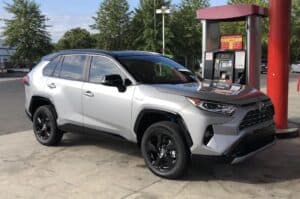 The class action lawsuit claim that Toyota knew of the defect. In a statement to Automotive News, Toyota confirmed that it is “investigating a fuel tank shape issue on certain RAV4 Hybrid vehicles. In these cases, variations in fuel tank shape may prevent a full refill by up to several gallons. This condition may affect the vehicle’s total available driving distance. As a best practice, customers should refuel before or when the low fuel light illuminates to prevent running out of fuel.” Toyota dealers similarly reported to Automotive News that “they were aware of the issue.”
The class action lawsuit claim that Toyota knew of the defect. In a statement to Automotive News, Toyota confirmed that it is “investigating a fuel tank shape issue on certain RAV4 Hybrid vehicles. In these cases, variations in fuel tank shape may prevent a full refill by up to several gallons. This condition may affect the vehicle’s total available driving distance. As a best practice, customers should refuel before or when the low fuel light illuminates to prevent running out of fuel.” Toyota dealers similarly reported to Automotive News that “they were aware of the issue.”
The defect of the redesigned fuel tank causes the affected vehicles to have a driving range markedly lower than designed and diminished value.
Does the alleged fuel tank defect violate the RAV4 vehicle warranty?
Toyota provides RAV4 purchasers with an express warranty, including a “New Vehicle Limited Warranty” for 36 months or 36,000 miles, whichever occurs first. The New Vehicle Limited Warranty covers “repairs and adjustments needed to correct defects in materials or workmanship of any part supplied by Toyota.
The Federal Emissions Control Warranty covers the fuel tank for the RAV4 Hybrid. The Plaintiffs allege that Toyota evades its warranty obligations by claiming that the defect is not a defect but a normal operating condition. Based on that position, it declines any warranty coverage to bring the Subject Vehicles in line with Toyota’s representations regarding the fuel tank capacity.
What has Toyota done to resolve the alleged fuel tank defect?
Due to the issues with the fuel tank, Toyota announced a Customer Support Program (the “CSP”) for specific 2019 – 2020 Model Year RAV4 HV (CSP 20TE04) and certain 2020 Model Year RAV HV (CSP 20TE05). However, this remedy applies only to RAV4s that accept 12 gallons or less TOTAL and only 9.8 once the fuel gauge indicated empty. Notably, owners have complained this does not resolve their fueling and traveling mileage issues.
Are RAV4 vehicles with the fuel tank defect unsafe?
Any car that gives an inaccurate fuel reading, and where Toyota advises that customers “should refuel before or when the low fuel light illuminates, to prevent running out of fuel,” may be considered unsafe.
Have the RAV4 hybrid class action lawsuits been settled?
No. The Pulkrabek lawsuit has recently been dismissed by agreement of the parties, with no class-wide settlement.
In the In Re Toyota RAV4 Hybrid Fuel Tank Litigation, while the parties had previously announced a settlement of that class action case on May 9, 2022, the parties requested the action be dismissed.
On May 31, 2022, the Court stated it would dismiss the class action lawsuit once notice had been provided to individuals who had contacted counsel and a press release had been issued.
On July 18, 2022, counsel for Plaintiffs confirmed that it had emailed 738 individuals “to inform them that (1) the individual claims asserted by the thirty-nine named Plaintiffs against defendant Toyota Motor Sales, U.S.A., Inc. in the case have now been settled, (2) the Court has approved the parties’ request to dismiss absent class members’ claims without prejudice, and (3) if any individuals wish to proceed with claims against Toyota regarding the alleged RAV4 fuel tank defect, they should be aware that such claims are subject to a statute of limitations and they should contact another attorney to file suit on their behalf if so desired.”
The case was dismissed on August 5, 2022. We are not aware of any other class action lawsuits pending over this issue and no potential class action settlements. This means the time to bring any individual lawsuits over this defect may be ending soon, depending on when you purchased your vehicle.
Is there anything I need to do now?
At this point, as there are no class action lawsuits pending that will provide relief to you, if you want to bring your own claim, you need to consider doing so now before any applicable statutes of limitation (time limits) may run.
What is the Song-Beverly Warranty Act?
The Song-Beverly Warranty Act, California Civil Code §1793.2(d)(1), is a California state law that requires manufacturers to repair defects after a reasonable number of repair attempts. What is “reasonable” is not part of hard and fast rules – safety defects should be fixed immediately, for example. The defects must be significant and must “substantially impair the vehicle’s use, value, or safety.” Civil Code §1793.22(e)(2).
Under Civil Code §1793.2(d)(1), manufacturers must promptly offer repurchase or replacement of the vehicle they cannot fix in a reasonable time frame. In addition, Civil Code §1794(c) and §1793.2(d) provide that customers may have a civil penalty up to two times the actual damages if manufacturers acted “willfully” (meaning knowingly but not necessarily with wrongful or malicious intent) in ignoring or failing its obligation under Song-Beverly.
Finally, under Civil Code §1794(d), manufacturers must pay the plaintiff’s attorney’s fees and costs as part of the settlement. The Song-Beverly Act is a pro-consumer fee-shifting statute.
May I have additional rights if I am an Armed Forces member?
Under Cal. Civil Code 1795.8, if a person is a member of the Armed Forces, the protections of the Song-Beverly Act may apply, even if you purchased your vehicle outside of California, so long as the manufacturer sells cars in California. The Armed Forces member would need to show they were stationed in or a resident of California when they purchased the vehicle or when they filed a claim against the manufacturer.
What relief could I get if I brought an individual lemon law lawsuit?
 Current or former owners of these vehicles who purchased their cars in California should be aware that the California lemon law may force Toyota to “buy the vehicle back” or provide other important compensation. Under California’s lemon law, qualifying “lemons” must be bought back, which can mean a large cash refund and payoff of your loan or lease. The refund could be as much as everything you paid for the vehicle and everything you owe: monthly payments, down payments, tax, finance charges, license, registration, etc. You could even qualify for two times your money back.
Current or former owners of these vehicles who purchased their cars in California should be aware that the California lemon law may force Toyota to “buy the vehicle back” or provide other important compensation. Under California’s lemon law, qualifying “lemons” must be bought back, which can mean a large cash refund and payoff of your loan or lease. The refund could be as much as everything you paid for the vehicle and everything you owe: monthly payments, down payments, tax, finance charges, license, registration, etc. You could even qualify for two times your money back.
What Toyota would have to buy it for has nothing to do with its current worth. There is a formula in the law that starts with you getting all your money back and then taking certain deductions and exclusions away from your payment. Those refunds and exclusions are difficult to understand and can be fought against by knowledgeable consumer attorneys. Don’t settle for small-dollar payments or more possible fixes without speaking to a qualified consumer attorney with your individual best interest in mind.
